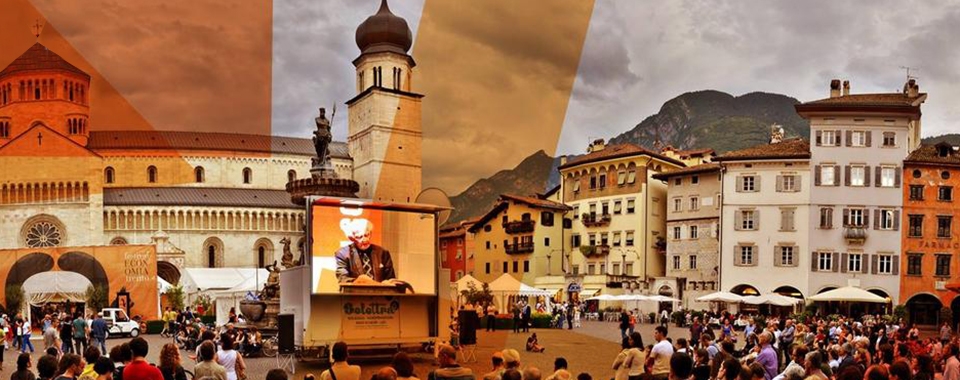
Festival dell’Economia 2019: what do they talk about?
Festival dell
The objective: validate the alignment between the discussion generated by the interventions programmed throughout the city and the online discussion on Twitter, within the Festival framework.
We asked Carlo (PM of Tapoi), Christian (Data Scientist), Rossana (Graphic Designer) and Eleonora (Marketing Manager) how it was!
Eleonora, would you do a short thematic introduction of the 2019 Festival edition?
More than a hot issue, “Globalization, Nationalism and Representation” was the title of this 14th edition, which started on Thursday, May 31st and ended on Sunday, June 2nd. The topic was discussed across different points of view, through interventions and workshops focused on politics, economics and geographic places. I myself participated
Christian, would you please explain what was the purpose of your analysis?
Well, thanks to Tapoi, our customer intelligence platform, based on artificial intelligence and semantic analysis technologies, we had the opportunity to track and analyse both quantitatively and qualitatively, the Twitter activity linked to the Festival dell
Rossana, tell us about it, what were the first results you got?
First of all, I have to point out the following clarification: the Twitter coverage that we have analyzed was not only focused on the activity of the official account of the Festival (@economicsfest), but also on that of the numerous accounts that have participated in the debate including the hashtag # festivaleconomia2019 in their tweets. For convenience, we defined this second group as “audience”, imagining that this pool includes speakers, staff members, institutional figures, citizens, spectators and visitors.
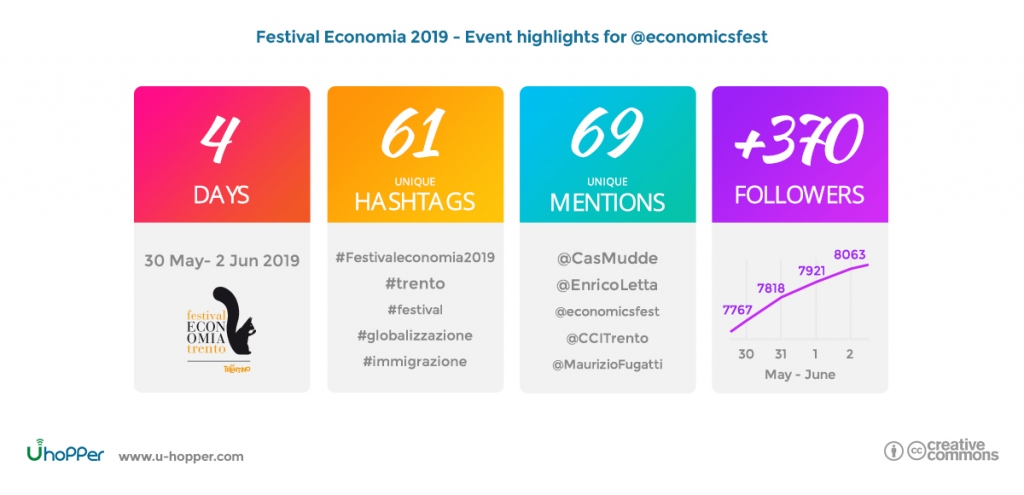
As a first step, we can get a general overview of the Twitter activity through the Festival official account @economicfest. By comparing the figures with the editions of 2017 and 2018, it is easy to understand that, even if the number of #hashtags and @mentions has decreased, the number of new followers acquired over the 4 days has increased significantly, showing a rising interest across the Twitter population towards the kermesse.
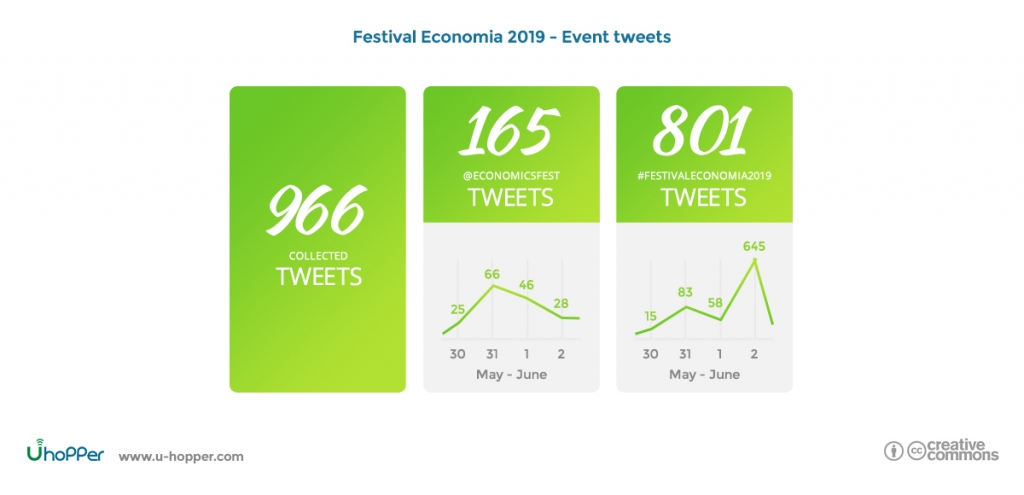
As previously mentioned, our analysis
So, Carlo, based on the further results of your analysis, how was this year’s topic perceived by the Festival audience? Have the proposed interventions achieved the desired goal of bringing attention to the specific themes of “globalization”, “nationalism” and “representation”?
As usual, the most interesting insights are given by the analysis of the tweets’ content.
In fact, their simple counting, together with that of mentions and the use of certain hashtags, allows us to solely identify quantitatively relevant metrics.
But Tapoi does not stop there, it allows us to semantically analyze the content of tweets – word by word – and to clearly identify the topics of discussion. Following, I would like to highlight some of the relevant aspects that have resulted from our analysis.
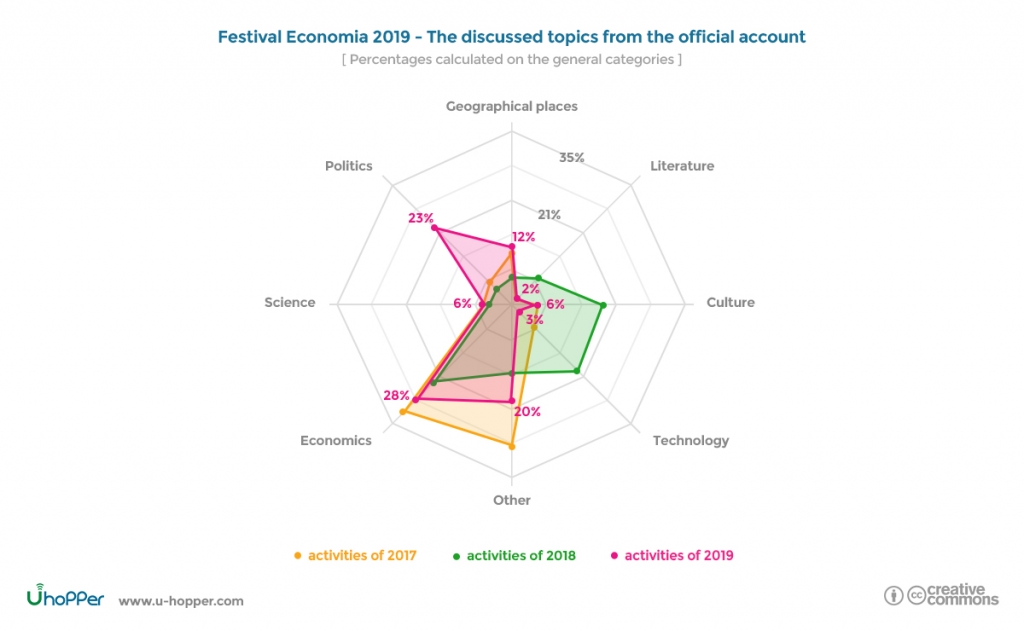
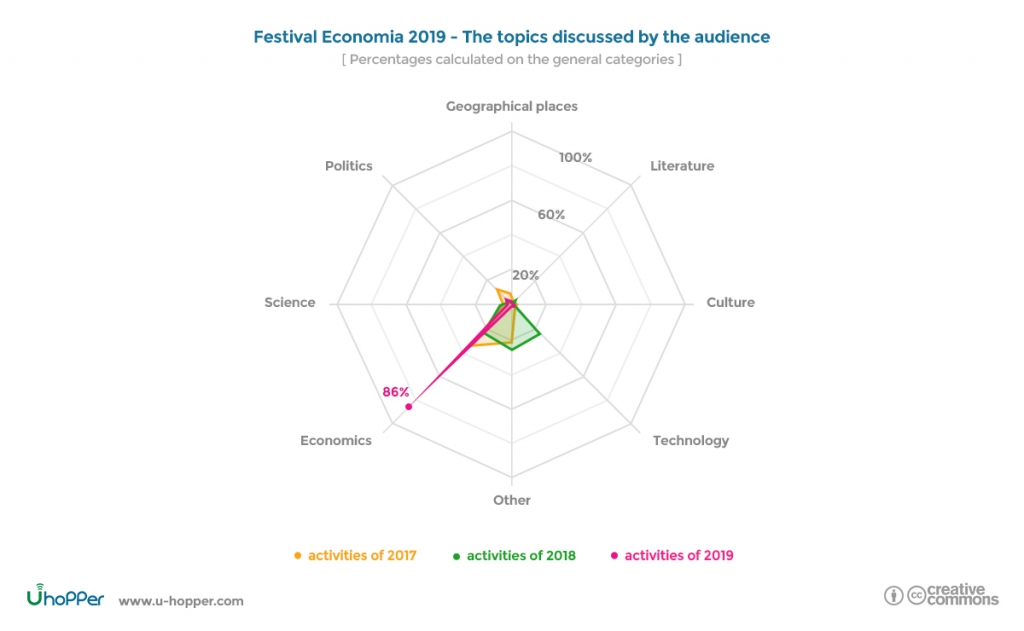
The
Following are some of the considerations that can be drawn:
- the Twitter coverage of the official account reflects the central topics of the respective editions:
- at the 2017 edition “The unequal health” the discussion was mainly focused on economics;
- during the 2018 Festival – “Work and Technology” – tweets were
centered not only oneconomics, but also on technology and culture; - during this year’s edition – “Globalization, Nationalism and Representation” – the discussion was definitely focused on economics and politics.
- overall, the topics discussed by the audience across the years, do not reflect the central subjects of the respective editions. Economics and politics are the recurrent real focus. It is interesting to note that in this last 2019 edition, “economics” clearly prevails as the main theme.
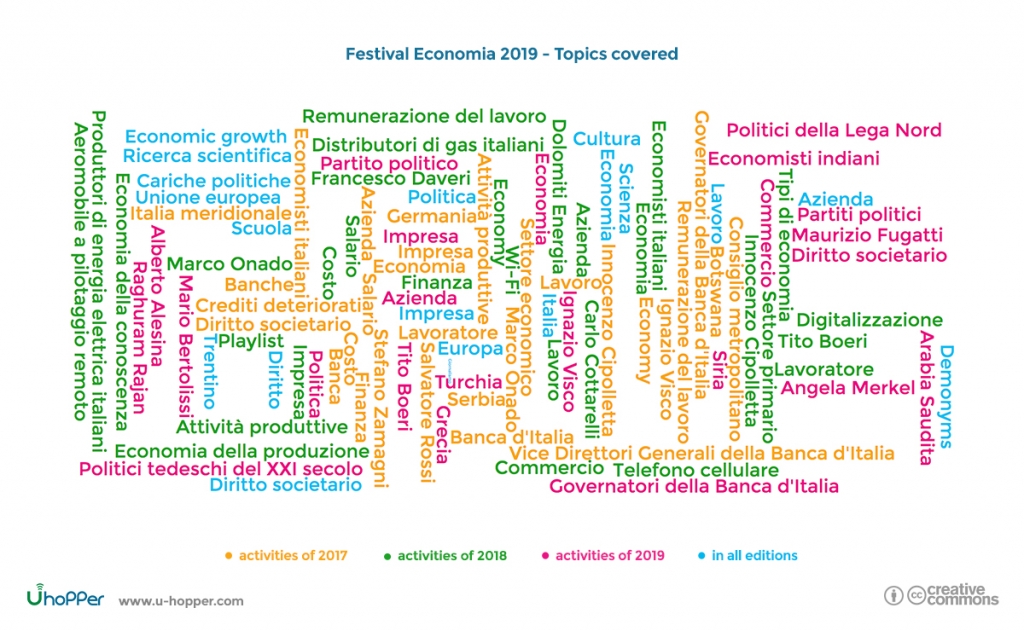
To go deeper into details, we can look at the spider-web that gives us a qualitative comparison between the concepts mentioned (aggregation of official account and audience) during 2017, 2018 and 2019 Festival, highlighting those “in common” that were touched across the three editions. This passage is pretty useful to identify the recurrent topics that characterize the Festival as a whole (for example “economics”, “politics”, “European Union” highlighted in blue) and the specific ones that have characterized every single edition (for example “digitalization”, “mobile phone”,” wi-fi “highlighted in green and related to the 2018 edition” Work and Technology”).
Christian: did you find any substantial differences in the analysis of the 2019 edition compared to past ones?
Actually, there is some news: this year we wanted to add a further level of analysis. To explain what this is all about, I would rather start with a premise: the analysis model that we used includes those “macro” – categories that we thought could be relevant for the observation of the main topics treated during this last edition of the Festival dell’Economia.
In the past, we had never given too much importance to “Other”, but this year we asked ourselves: what flows in here? Clearly a bit of everything, but luckily nothing relevant to the purpose of our analysis on the Festival dell’Economia.
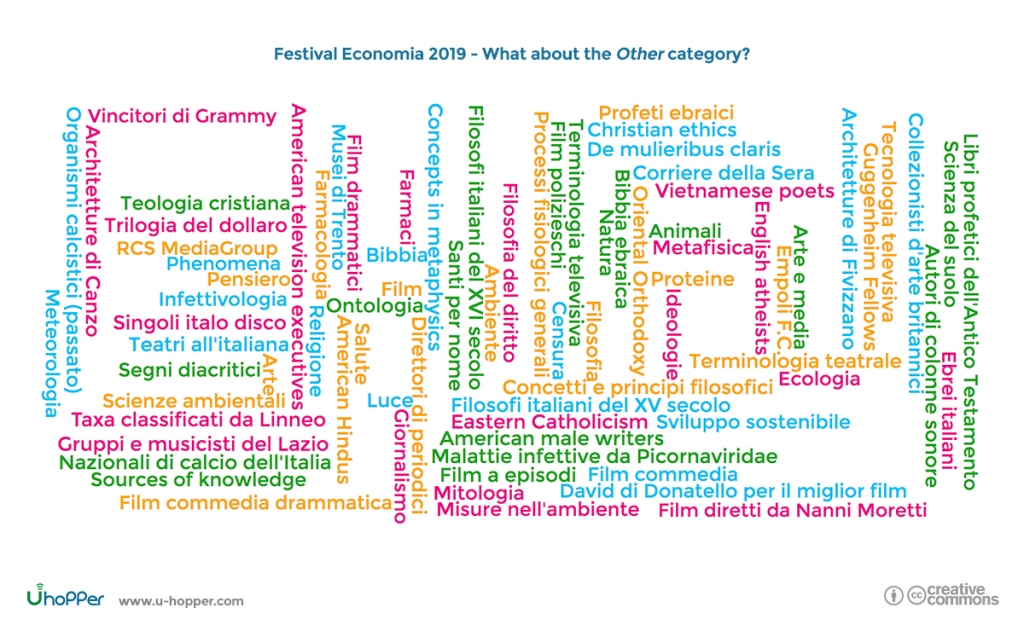
Although we did not identify any left-out relevant information within the “Other” category, such in-depth analysis was a useful exercise, which allowed us to validate the construction of our analysis model and of the categories we had picked.
Let’s get to the end: Eleonora, what are your conclusions?
We do have an answer, but we don’t want to dive into it, because that is not our goal. Therefore, we will hand-on the task of identifying the answers in between the lines directly to our readers.
Surely, the Festival is a very close event to us and we like taking the opportunity to “remain fit” on this kind of data analysis and on the use of Tapoi, which is evolving day by day, opening up to new types of analysis and to new verticals. It is a technology which entails great potential in supporting strategic decision making, which we think is fundamental in the future of the data-driven economy.
In short, it was an excellent exercise to be better prepared for the challenging problems and the most diverse use cases that our customers propose to us everyday.
Did you enjoy this article?
Enter your e-mail address to receive our newsletter!
PS: don’t worry, we hate spam just as much as you do. We’ll send you just a couple of emails a year with a collection of the most interesting articles, it’s a promise!
